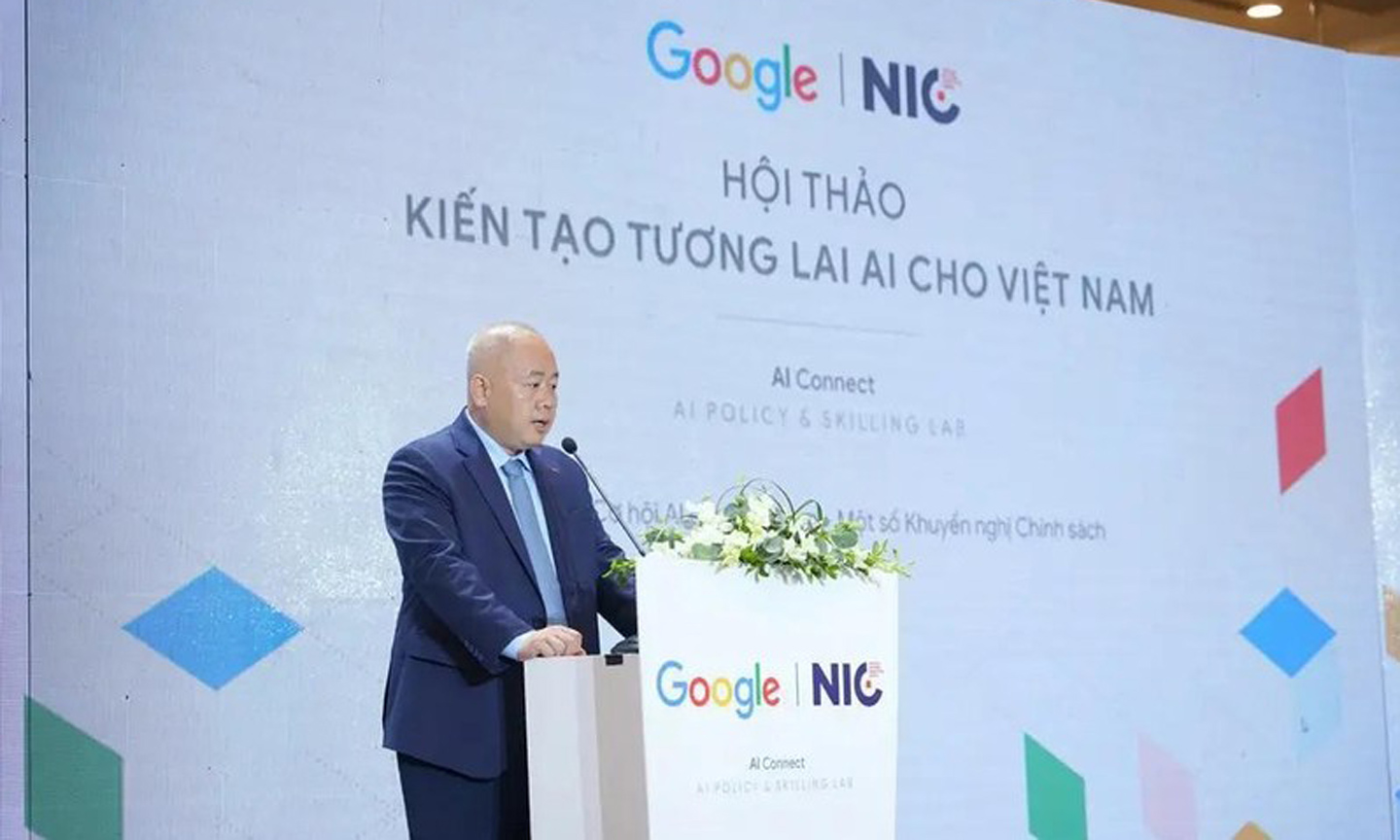AI development policies, mechanisms in Vietnam spotlighted
ABO/NDO- The National Innovation Centre (NIC), in collaboration with the Ministry of Planning and Investment and Google, organised a seminar on November 15 to explore the potential of artificial intelligence (AI) and discuss policies and mechanisms for its development in Vietnam.
In his opening remarks, Deputy Minister Do Thanh Trung said that the ministry has submitted the human resources development programme for the semiconductor industry until 2030 with a vision to 2050 to the Prime Minister for approval. The programme aims to train at least 5,000 AI engineers and specialists by 2030, supporting Vietnam's growing semiconductor industry.
The ministry has tasked the NIC with collaborating with domestic and international partners to establish a centre for AI training, research, and application. This centre will support AI startups, research, and specialised AI training, with a target of training 7,000 AI experts to international standards and nurturing around 500 AI startups by 2030.
 |
| Deputy Minister of Planning and Investment Do Thanh Trung addresses the event (Photo: VNA). |
At the event, Google presented its economic impact report themed "Driving digital growth in Vietnam with Google", which highlighted the significant economic potential of AI. According to Google’s research, AI could contribute an estimated 1.89 trillion VND (79.3 billion USD) to the country's economy by 2030, or nearly 12% of its GDP.
To fully harness the potential of AI, Google’s AI Opportunity Agenda for Vietnam report suggests the country strengthen its innovation infrastructure, build a workforce ready to optimise AI, and increase AI accessibility across the economy. The report also provides detailed strategies to bridge the digital and AI knowledge gaps, helping Vietnam's workforce leverage AI effectively to spur economic growth. It stresses the importance of retaining and developing local talents by expanding access to digital education and increasing business training programmes.
The report concludes that to maximise AI's economic benefits, Vietnam must focus on developing a skilled digital workforce. Addressing the digital skills gap through specialised training and technology application will unlock significant economic opportunities for the country.
In addition, Google outlined its current contributions to Vietnam's businesses, households, and workforce through AI-powered products and services such as Google Search, Google Ads, Google Play, YouTube, Google Cloud, and Google Workspace.
Andrew Ure, Managing Director of Government Affairs and Public Policy for Southeast Asia at Google, highlighted that with its young, tech-savvy population and dynamic digital landscape, Vietnam is well-positioned to seize the opportunities AI offers. He said that his company is eager to partner with NIC to introduce the first-ever “AI Policy & Skilling Lab” in Vietnam, and look forward to collaborating with the government, ministries, and research organisations to build an AI-driven future that benefits everyone.
The seminar also featured discussions from experts across government agencies, research institutions, and businesses, who proposed specific solutions to encourage investment in AI research and development. These included building a high-quality AI workforce, developing an AI innovation ecosystem, and fostering an environment where AI ideas can be nurtured and realised.
Another key topic discussed was the need for a comprehensive legal framework for AI to ensure its safe, responsible, and ethical development and application in Vietnam.
(Source: NDO)
 về đầu trang
về đầu trang







